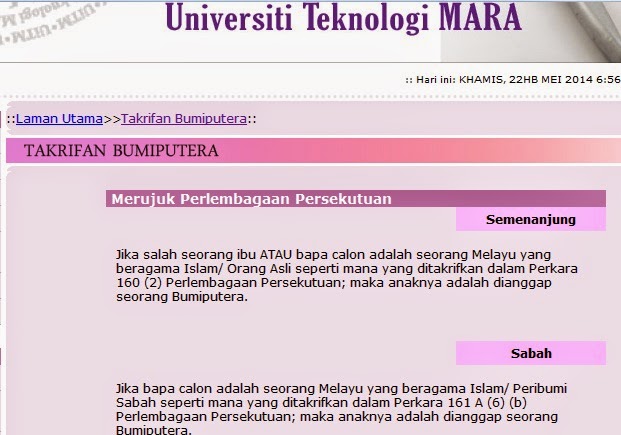TMI
There are enough laws to prosecute those who make disparaging racial and religious remarks but selective investigation and prosecution is a cause for worry, a former attorney-general and lawyers said.
Insisting that the Sedition Act be removed from the statute book, they said the law on sedition was stacked against an accused and it gave the prosecution an upper hand in obtaining a conviction.
They said this in response to Suhakam chairman Tan Sri Hasmy Agam’s call to Putrajaya that the Sedition Act be repealed and replaced with a National Harmony Act as promised by Prime Minister Datuk Seri Najib Razak in 2012.
Hasmy said recently, several opposition politicians had been prosecuted for allegedly making "seditious remarks" but the Suhakam chairman noted that there were other laws which could have been used to handle such matters.
Hasmy (pic, left) said Suhakam recognised that freedom of speech had its limits but Putrajaya must uphold the principle of equality.
Former attorney-general Tan Sri Abu Talib Othman said there was no point enacting new laws when the implementation was questionable.
“Every person is equal under our law. To be effective, all laws must be enforced fairly ,” said Talib who was the A-G between 1980 and 1993.
He said these days many were charged with sedition and there was a public perception of selective prosecution.
Talib said he had framed charges against a few individuals under the Sedition Act but it was done fairly to obtain a conviction.
He expressed reservation on the prosecution of DAP national vice-chair Teresa Kok over her controversial satirical video “Onederful Malaysia” last February.
“Is this case a suitable benchmark for sedition in this country?” he asked.
Talib, who is also a former Suhakam chairman, added that there were also adequate laws to maintain public order and national security.
Criminal lawyer Datuk Baljit Singh Sidhu said the prosecution of opposition leaders for sedition only lent support that the law was used to muzzle legitimate dissent.
He said Putrajaya would have done its homework before Najib announced the repeal of the law.
“Yet, the public prosecutor sees it fit to charge opposition leaders and those against the establishment over the past one year."
He said the conduct of current Attorney-General Tan Sri Abdul Gani Patail ran contrary to the promise made by Najib.
Lawyer Edmund Bon (pic, right) said there were sufficient provisions in the Penal Code and also the Malaysian Communication and Multimedia Act 1988 to act against those who used race and religion to make hate speech.
“I am for responsible freedom of speech but against using the Sedition Act,” he said.
Bon said under the sedition law, it was a presumption that the accused was responsible for inciting hatred when the burden of proof in criminal law was always with the prosecution.
“During trial, the prosecution need not prove intention of the accused and this makes it easier for them to secure a conviction."
Lawyer Abd Shukor Ahmad said the intention of the sedition law, which originated in England, no longer existed.
“It was enacted to curb anyone from making derogatory remarks against the state during the reign of absolute monarchy,” he said.
Shukor said the law had lost its relevance in a parliamentary democracy and open government system.
“We are still stuck in a time warp if the law remained in our statute book,” Shukor said, adding that the legislation was against basic rights of citizens to criticise their elected government or offer differing views.
Lawyers for Liberty executive director Eric Paulsen said individuals would be reluctant to make hate speech using race and religion if they were reprimanded severely by the media, community and political leaders.
“These individuals will think twice to use race and religious card to champion an issue,” he said.
Paulsen, however, lamented that these individuals became bolder because they obtained tacit support from politicians and the mainstream media.
He said offenders could be charged under the Penal Code as it gave them a fair level of playing field in putting up a defence unlike the Sedition Act.




Tiada ulasan:
Catat Ulasan